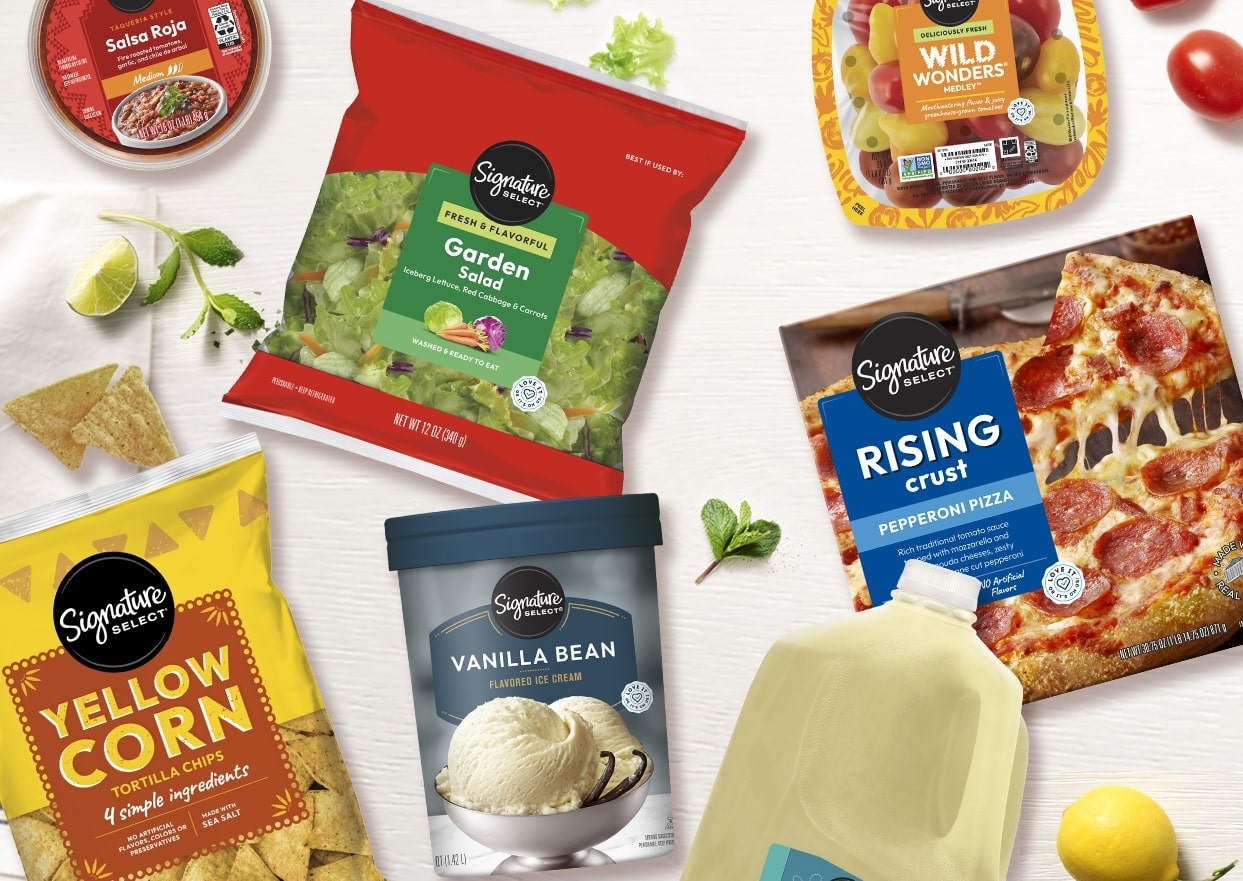
Inflation has prompted many of us to switch to store-brand groceries. Habit and happiness with our choices could prompt many of us to keep at it, even if inflation subsides.
That’s what FMI – The Food Industry Association has found in the latest edition of its 2023 Power of Private Brands report. Increasing store-brand quality, and increasing satisfaction with the value they offer, could mean that many shoppers who switched to store brands to save money, may never switch back to the name brands they once preferred.
Fully 90% of survey respondents told FMI they are very or somewhat likely to continue purchasing store brands, even if inflation or the prices of groceries decrease. “It’s one thing for shoppers to buy more private brands in an inflationary environment, but it’s another thing to continue purchasing store brands if those conditions change,” the report points out.
Already, almost all shoppers – 96% – said they purchase at least some store brands occasionally. But the frequency with which they do so is increasing. 46% said they now purchase store brands most or all of the time.
And they don’t expect that to change. More than half of all shoppers expect to buy private-label products more often. A quarter anticipate reducing their purchases of name brands. Paper products, salty snacks, packaged breads and milk are the top categories in which they expect to make that switch.
When asked why, shoppers told FMI it all comes down to price. “Buying store brands is cheaper,” one respondent said. “Brand names increased prices too much,” another complained. After making the switch to store brands, one shopper said “I have found them effective, so I’ll save the money over national brands.”
But price isn’t the only consideration. If it was, then more shoppers might be willing to switch back to name brands once rising grocery prices stabilize. Instead, while price and value remain the biggest influencers, 65% of shoppers mentioned additional factors that motivate their private brand purchases, ranging from taste and quality to availability.
“Private brands are increasingly a ubiquitous choice as the perceptions of these brands have improved,” the report states. Sometimes, though, shoppers are willing to make compromises if the store brands aren’t quite up to par. Only 3% said they typically found store brands to be better than their name-brand equivalents. 37% said they were about the same, while a majority – 60% – said store brands were “good enough.”
That’s not necessarily a resounding vote of confidence. The deciding factor, though, isn’t price, but taste. On a list of top priorities when deciding between name brands and store brands, taste ranked number one, above affordability. “Shoppers are clearly saying that taste is a deal breaker,” FMI noted. After all, what good is saving money if you don’t like the product?
Of course, you won’t know how something tastes until you try it. So FMI says retailers need to encourage trial in order to turn curious customers into loyal store-brand buyers. “I’m open to trying other brands, and if any brand sent me a coupon for a free product, I would definitely try it,” one shopper told FMI. Nearly three-quarters of shoppers also said they have purchased store brands from retailers that offer extra loyalty points, rewards or discounts for doing so. The more that retailers incentivize shoppers to try their brands, the more they may ensure those shoppers don’t switch back to the name brand alternatives.
“Although inflationary pressures may have been the catalyst that prompted consumers to try more private brand products over the last few years, shoppers have clearly come to appreciate the quality and value that store brands offer,” FMI Vice President of Industry Relations Doug Baker said in a statement. “Shoppers are motivated to purchase store brands because they like the quality and the taste of the products, not just because of the affordability and value that private brands provide.”
In the first half of this year, FMI points out that store-brand sales rose to a record 18% of all grocery sales, while store-brand products now represent nearly one out of every four grocery products purchased. At a time when many national brands are raising prices and offering fewer coupons and deals, shoppers are more willing to consider alternatives. And if they like the alternatives that their favorite grocery stores offer, it may be the national brands’ turn to step it up, in order to win them back.
Image source: Albertsons















